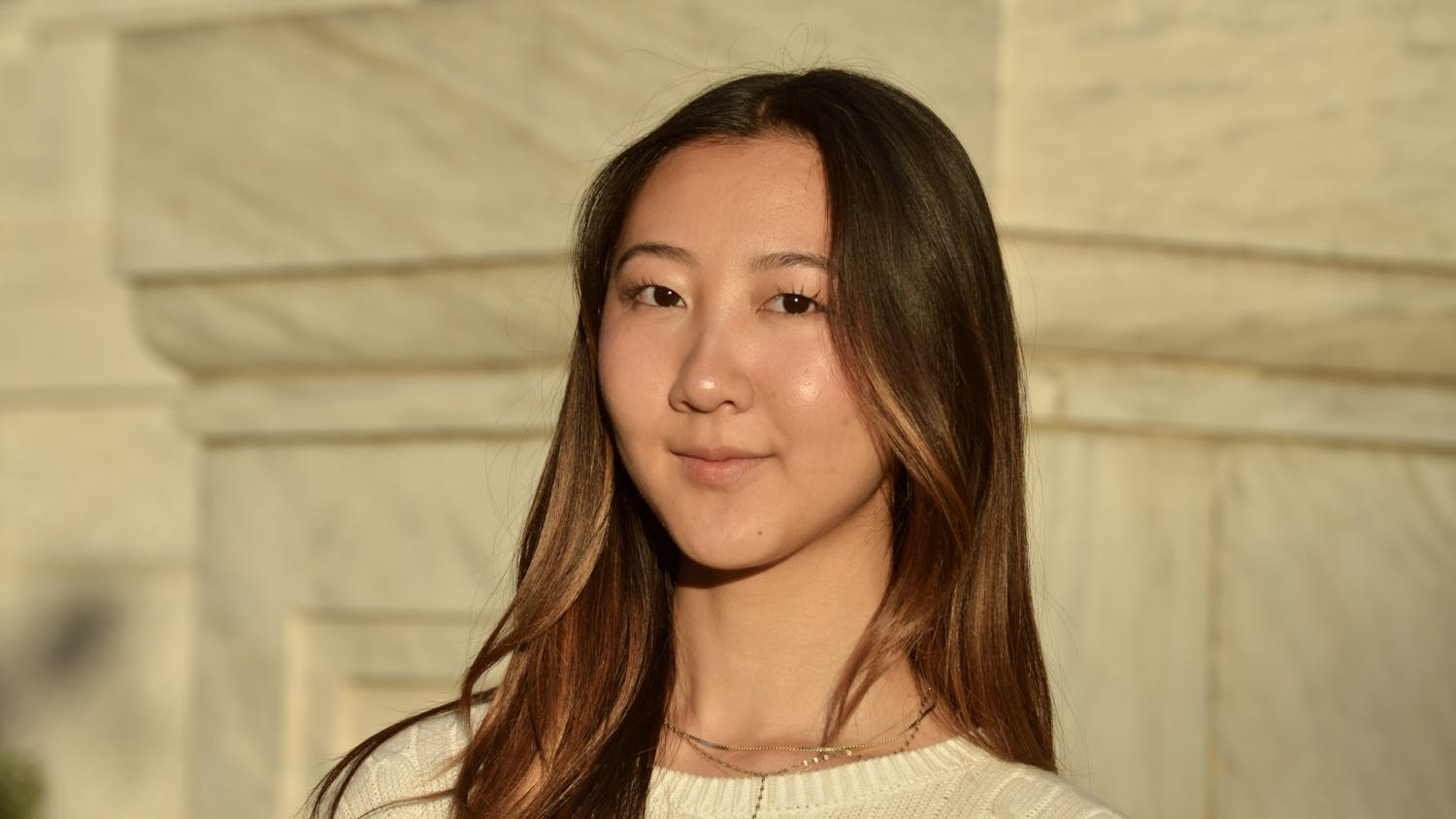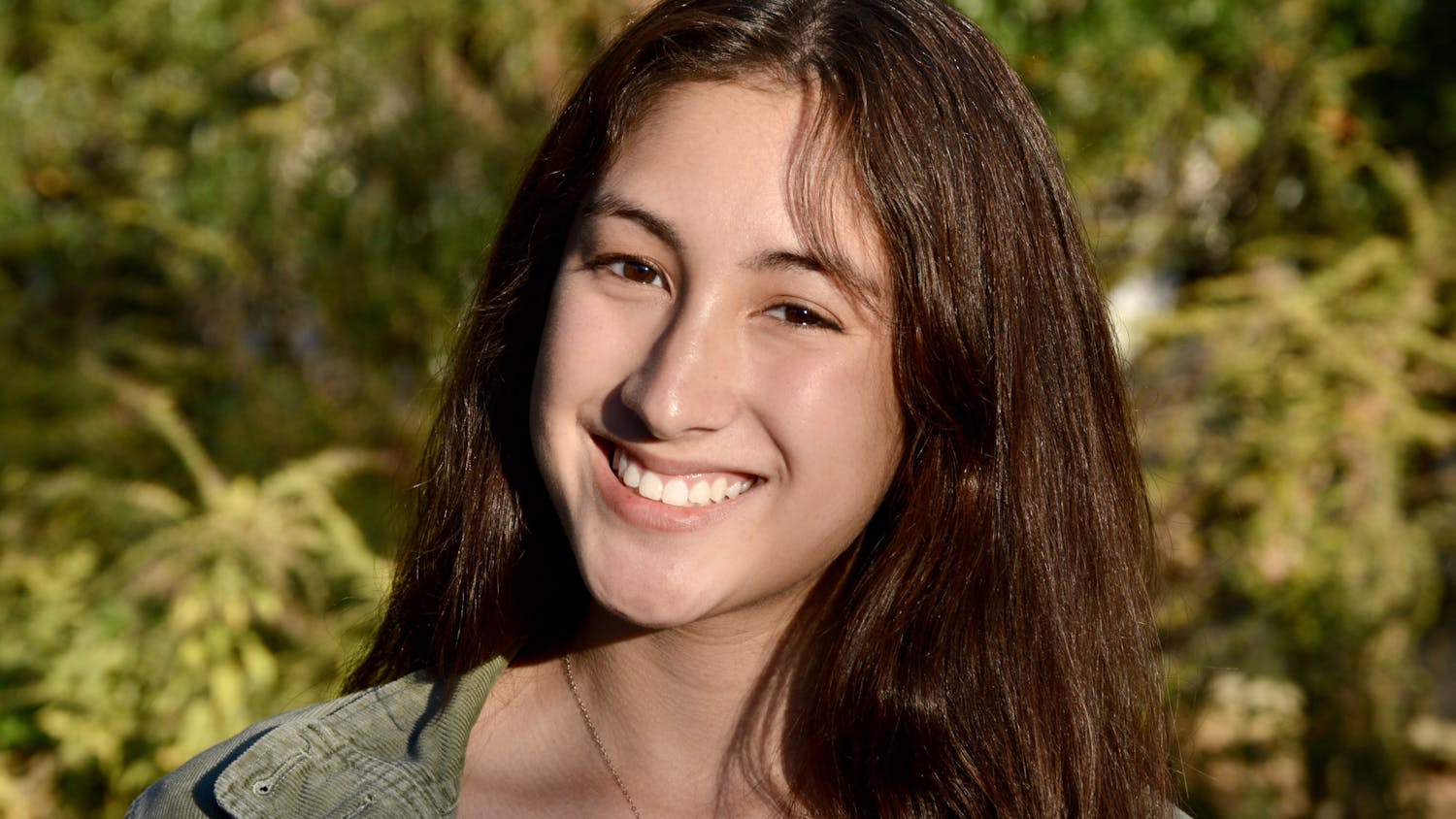Shortly after New Year’s, an AU alumnus posted a blog asking AU’s marketing team to put an end to the wonk campaign after Anderson Cooper failed to define a wonk live on CNN during New Year’s Eve.
As students of this University, do you believe AU should stick with the wonk campaign, or should it be ditched as the alum implies?
“WONK” drove me away from AU
by Nathaniel Cohen
I vividly remember that April morning during my senior year of high school when I witnessed the WONK brand for the first time. I entered the welcome center in Katzen and saw the phrase sprawled across flyers, television screens, t-shirts and even the banner on the desk. I asked the woman working the desk what ‘wonk’ meant and she gave a stammering answer similar to Anderson Cooper’s on New Year’s Eve.
From my understanding, the campaign was designed to attract a certain type of student: political science majors. Therefore I assumed I would be surrounded by people exactly like me, studying the exact same material. This was off-putting, and drove me to submit my enrollment deposit to Dickinson College. The WONK campaign turned me of off.
My freshman year at Dickinson came and went, and I realized I was unhappy there. I wanted to leave, but the thought of submitting more college applications seemed about as appealing as partying with the College Republicans. I decided to send in an application to AU, even though I rejected them only a year earlier. Acceptance soon followed, delivered by an envelope with a big WONK logo right on the cover. WONK was back on my radar, and that unwelcome feeling of apprehension and uncertainty crept back into my head.
To be fair, I am glad I made the switch. But shortly after arriving on campus, I remembered why I was initially turned off by AU: WONK was everywhere. And I still couldn’t even define it. According to the administration, wonks are passionate, driven, accomplished and damn proud of it. But since I started my own investigation, I’ve realized my understanding and the administration’s do not align.
For the most part I have noticed the word is not considered a compliment by most students. Getting called a wonk is the equivalent to getting picked last in recess kickball or having your lunch money stolen. Young wonks often think of themselves as the most interesting, connected, passionate students. In my observations, they are the most one-dimensional, uninteresting peers I have come across.
It is time for AU to recognize that this marketing campaign has not had its intended results. While wonks may be attracting more prospective students, new enrollees are not buying into it once they arrive on campus. As a result the AU brand is being damaged. Transferring to AU was the right decision, but having rejected and then accepted AU, I can understand why I was hesitant to say “yes” at first.
Nathaniel Cohen is a sophomore in the School of Public Affairs.
WONK needs to re-assess its priorities
by Rathna Muralidharan
When I first started looking at AU as a potential setting for the next four years of my life, I was curious about the wonk campaign. The visitor center was covered with posters, slideshows and even free buttons advertising the different wonks around campus and out in the world. I thought it was a quirky, unique way of the school trying to show the public how passionate, driven and focused their student body is.
However, the phrase still didn’t sit right with me. Like almost all of my peers, when asked to explain to someone what a ‘wonk’ is, the most I could offer is an awkward silence punctuated with some “ums.”
Aren’t there other ways of showing how unique we are as a school without using some made-up phrase that everyone understands differently, but no one can properly define? Soon enough this harmless phrase turned into an embarrassing conversation topic, which hurt my school reputation, instead of properly explaining and showcasing just what an acclaimed place AU is.
Both Carter Gibson’s article on the blog InTheCapital and AU Vice President of Communication Terry Flannery’s response bring up a lot of important points. I get it, it’s hard to compete and appear unique when you’re up against other prestigious D.C. colleges. It is important and necessary to make a name for AU by focusing on the what our school uniquely offers in order to make our brand more well known to the general public. But can’t we do better than a campaign that a majority of the tested audience feels “neutral” about, as stated in the VP’s response?
Instead of forcing this concept into our community, resources would be better spent on a campaign that illuminates what is already unique about our school. I’m sure that I’m not alone when I say that what attracted me to AU wasn’t the idea of being labeled as a wonk, but rather being a part of a small yet influential community of highly driven peers and distinguished faculty. Students spend our days in the nation’s capital beside embassies, historic landmarks and government agencies, preparing and working towards a better future; not only through initiatives like energy-efficiency, but also through the ideas we discuss and develop.
Yes, we are driven, passionate and focused—but we don’t need some made-up term to oversimplify that dynamism. A university with a past as historic as ours and alumni as influential as ours can do so much better than a campaign that the majority of students don’t support, nonetheless understand. We can do better than having our awards and recognitions being described as “sweet” as Anderson Cooper did on New Year’s Eve.
Rathna Muralidharan is a freshman in the School of International Service.
Put WONK to bed
by Boot Bullwinkle
At the risk of sounding like a freshman, I asked one of my upperclassmen friends what the word on the sides of all the buses meant: wonk. I had never heard it through my first few months at AU and the application process, yet here it was emblazoned for the world to see. My friend, stumbling through his explanation, could deliver no clear answer.
AU may be among the top universities in America, but the University lacks school pride. There isn’t a large sense of tradition or school spririt in the sports programs is almost nonexistent. In an effort to unite students, lure in future prospects and encourage involvement of alumni, AU launched the WONK campaign in 2010.
As a marketing tool, AU’s WONK campaign is bordering on failure. There have been numerous student and alumni outcries against the campaign, but AU’s VP of Communications Teresa Flannery continues to ignore them.
The word “wonk” falls outside the realm of colloquialism and thus it fails to resonate with anyone outside of AU. In fact, it’s now become a source of embarrassment since 2013 WONK of the Year Anderson Cooper failed to even describe what the word means on live television.
A successful marketing campaign is meant to unite the student body and keep alumni involved with the school, but the WONK campaign continues to alienate school pride that already exists. There are plenty of things that AU students have to be proud of without slapping WONK on the side of a bus. The school has a prestigious reputation, a loving community of students/alumni and a beautiful city surrounding a vibrant campus.
Based on Flannery’s own statistics, 35 percent of undergraduate students find the wonk campaign to be a negative aspect of AU with 40 percent of undergraduates believing the campaign has been positive. Yes, a campaign that was meant to unite students has actually divided them.
It’s time for the University to finally put WONK to bed. A new campaign should be formed in its place, and it is in the AU’s best interest to incorporate students in the stages of development. The reason that students care so much about the campaign, and generally announce their displeasure, is because they take pride in being an Eagle, not a wonk.
Boot Bullwinkle is a freshman in the College of Arts and Sciences and the School of Communication.




